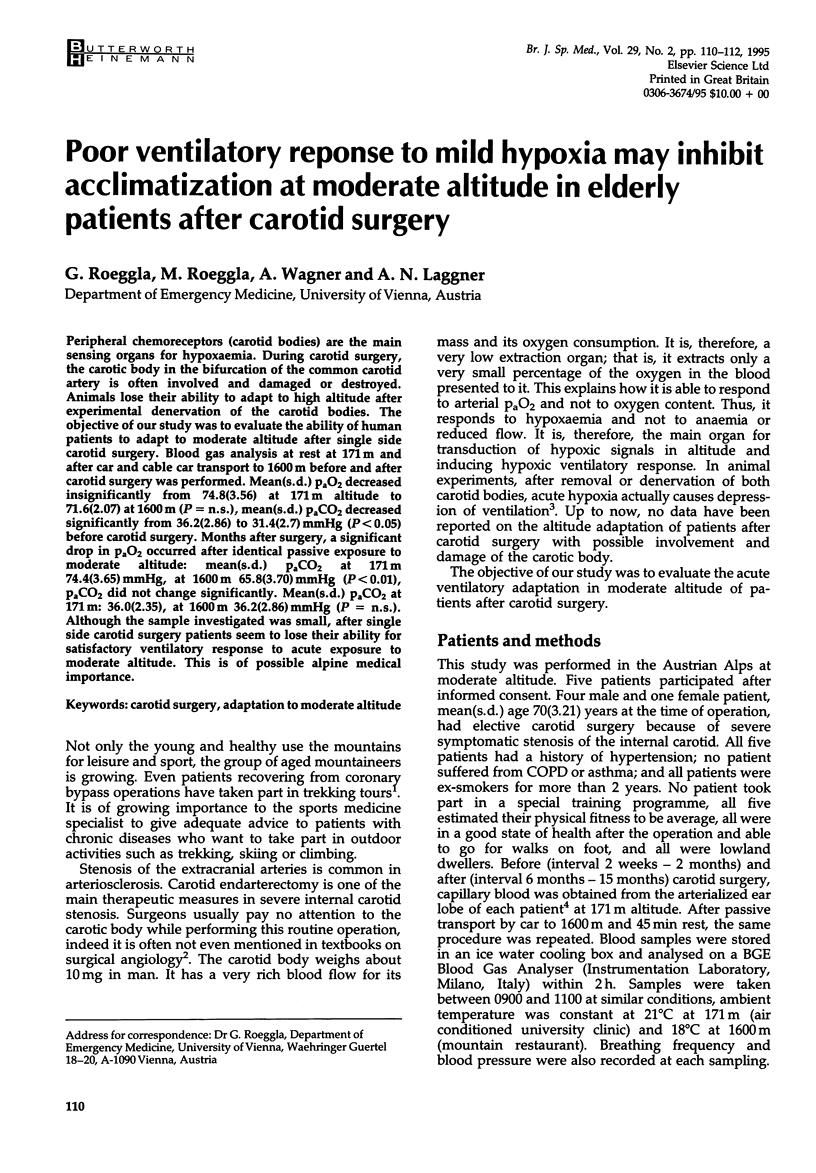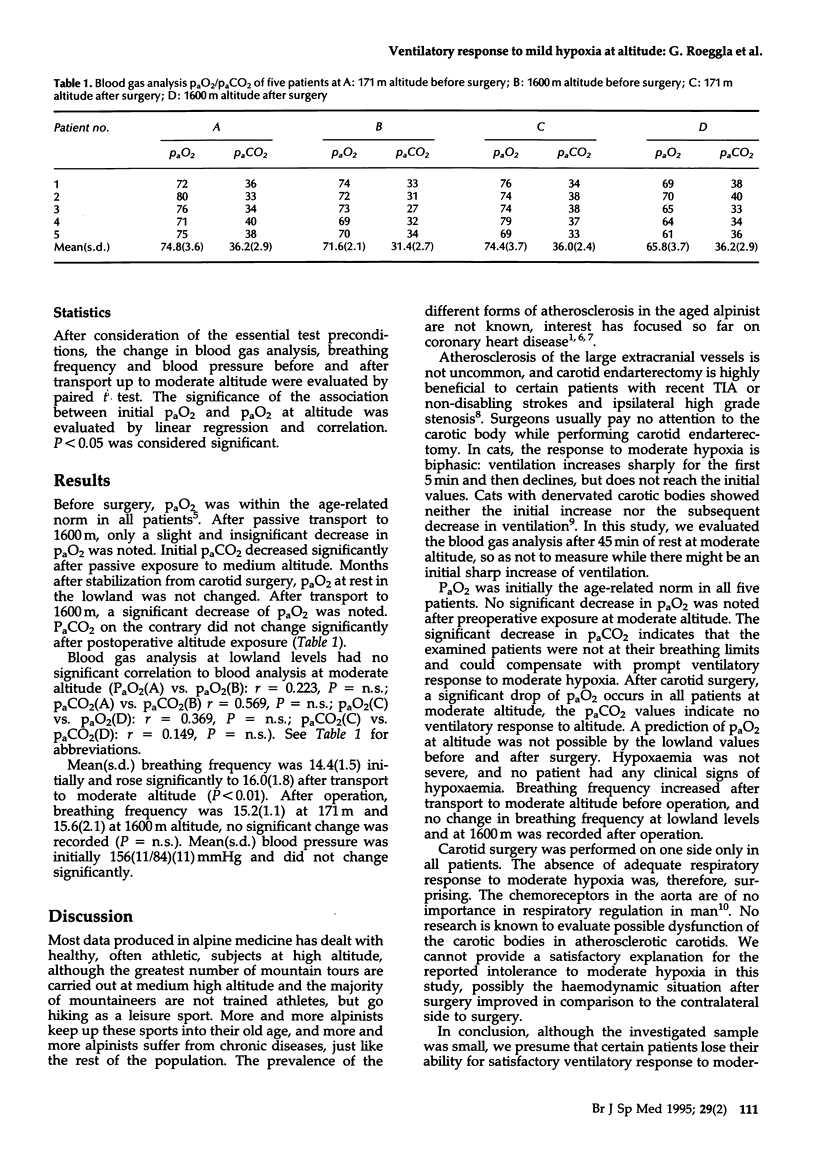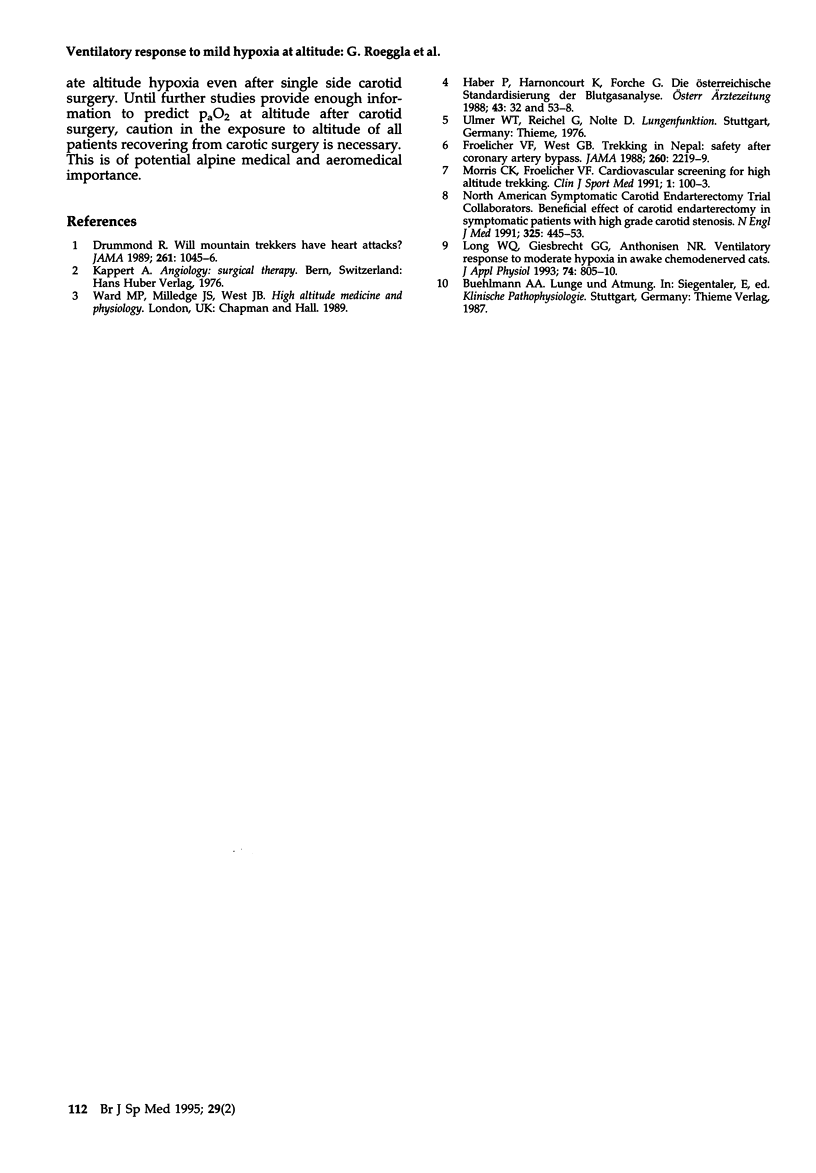Abstract
Peripheral chemoreceptors (carotid bodies) are the main sensing organs for hypoxaemia. During carotid surgery, the carotic body in the bifurcation of the common carotid artery is often involved and damaged or destroyed. Animals lose their ability to adapt to high altitude after experimental denervation of the carotid bodies. The objective of our study was to evaluate the ability of human patients to adapt to moderate altitude after single side carotid surgery. Blood gas analysis at rest at 171 m and after car and cable car transport to 1600 m before and after carotid surgery was performed. Mean(s.d.) paO2 decreased insignificantly from 74.8(3.56) at 171 m altitude to 71.6(2.07) at 1600 m (P = n.s.), means(s.d.) paCO2 decreased significantly from 36.2(2.86) to 31.4(2.7) mmHg (P < 0.05) before carotid surgery. Months after surgery, a significant drop in paO2 occurred after identical passive exposure to moderate altitude: mean(s.d.) paCO2 at 171 m 74.4(3.65) mmHg, at 1600 m 65.8(3.70) mmHg (P < 0.01), paCO2 did not change significantly. Mean(s.d.) paCO2 at 171 m: 36.0(2.35), at 1600 m 36.2(2.86) mmHg (P = n.s.). Although the sample investigated was small, after single side carotid surgery patients seem to lose their ability for satisfactory ventilatory response to acute exposure to moderate altitude. This is of possible alpine medical importance.
Full text
PDF


Selected References
These references are in PubMed. This may not be the complete list of references from this article.
- Long W. Q., Giesbrecht G. G., Anthonisen N. R. Ventilatory response to moderate hypoxia in awake chemodenervated cats. J Appl Physiol (1985) 1993 Feb;74(2):805–810. doi: 10.1152/jappl.1993.74.2.805. [DOI] [PubMed] [Google Scholar]
- Rennie D. Will mountains trekkers have heart attacks? JAMA. 1989 Feb 17;261(7):1045–1046. [PubMed] [Google Scholar]


